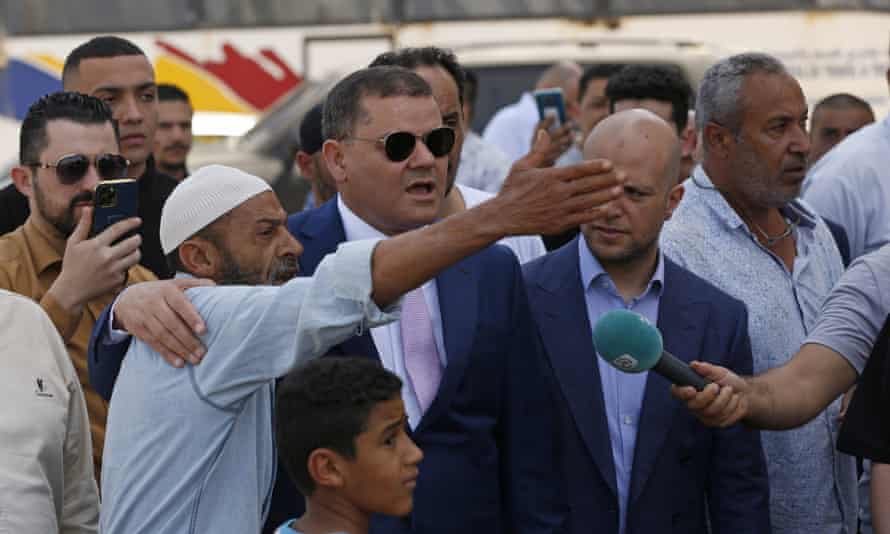Fighting broke out in Tripoli after one of the two rival Libyan prime ministers entered the capital to claim the role only to flee hours later when he realised he had misjudged the scale of military opposition.
Fathi Bashagha said he had retreated to prevent further bloodshed, and later said that he would base his government in the city of Sirte. It was clear he found that the levels of militia support he had been promised were not forthcoming. He had entered the city in secret overnight with the support of one powerful armed group, the eighth brigade, but it found itself isolated and no other support arrived from outside the city.
In statements before his retreat, Bashagha’s camp made it clear they had planned to take control of the government, and claimed he had received a warm reception in the capital.
The bulk of the clashes occurred at dawn.
There has been stalemate in Libya with rival groups claiming to run the country. Parliamentary and presidential elections planned for last December had to be shelved as the eligibility of various candidates was disputed, and there was no consensus that the result would be honoured.
Bashagha’s retreat not only damages him personally, and his efforts internationally to portray himself as a unifying figure, but is a boost for the caretaker prime minister based in Tripoli, Abdul Hamid Dbeibah.
Bashagha, who comes from the north-western city of Misrata and is a former interior minister, surprisingly allied himself with Marshall Khalifa Haftar, the military strongman in the east, just before the planned December elections. He was appointed prime minister by the Libyan parliament in the east, the House of Representatives, in the spring.
Dbeibah was made interim prime minister last year by an ad hoc UN body, but he was supposed only to remain in power until the elections. After they were postponed he refused to stand aside, and has continued to use Libyan oil revenues to shore up his popular support.

The UK diplomatic mission in Tripoli was one of many embassies to urge calm. It said: “Events in Tripoli demonstrate urgent need for a durable political solution that cannot and must not be achieved by force. We urge all sides to de-escalate tension and engage in meaningful dialogue towards stability and successful elections.”
The abortive attempt on Tripoli will add to calls for the international community to take a stronger grip on Libya’s reconciliation process.
Sign up to First Edition, our free daily newsletter – every weekday morning at 7am BST
Germany has hosted two summits in a bid to persuade both sides to accept presidential and parliamentary elections, but last autumn’s change in government in Germany and the overriding focus on Ukraine has allowed Libya to slip down the diplomatic agenda.
It is possible that the fighting will galvanise European leaders to refocus on the country. Most current diplomatic efforts have come from Stephanie Williams – who is acting as the special envoy of the UN secretary general, António Guterres, rather than as a UN security council-appointed envoy. She has been working to persuade both sides to agree to a draft constitution before elections. The absence of an agreed permanent constitution setting out the relationship between parliament and president was one of the reasons cited for delaying the election.
The US embassy in Washington highlighted the need for progress on the constitution saying: “Political leaders must realise that seizing or retaining power through violence will only harm the people of Libya.”